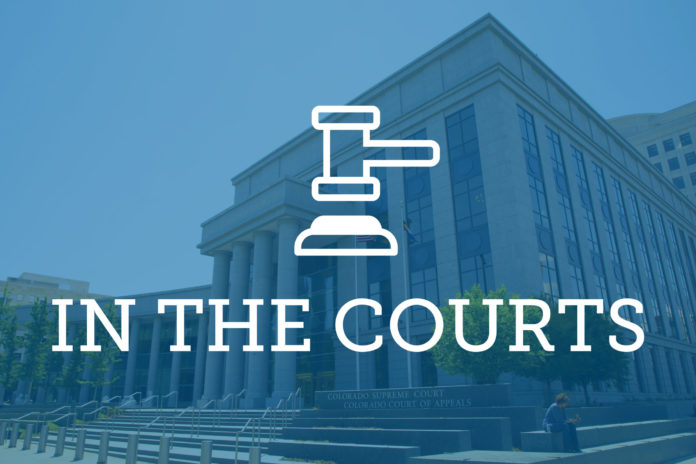
Editor’s Note: Law Week Colorado edits court opinion summaries for style and, when necessary, length.
Department of Education v. Louisiana
The applications for partial stays presented to Justices Samuel Alito Jr. and Brett Kavanaugh, which both justices referred to the U.S. Supreme Court, were denied in an Aug. 16 per curiam opinion.
The U.S. Department of Education recently issued a new rule implementing Title IX of the Education Amendments of 1972. The rule newly defined sex discrimination would include “discrimination on the basis of sex stereotypes, sex characteristics, pregnancy or related conditions, sexual orientation, and gender identity.”
Several states and other parties sought preliminary injunctions against the new rule, arguing among other things that the rule exceeded the bounds of the statutory text enacted by Congress. District courts in Louisiana and Kentucky agreed with the plaintiffs and preliminarily enjoined enforcement of the rule in the plaintiff states. The 5th Circuit Court of Appeals and the 6th Circuit Court of Appeals then declined to stay the injunctions in the interim period while those courts considered the government’s appeals of the preliminary injunctions.
The government filed emergency applications with the Supreme Court seeking partial stays of the preliminary injunctions pending resolution of the appeals in the 5th and 6th Circuits.
The court denied the government’s applications.
The opinion noted all members of the court accepted that the plaintiffs were entitled to preliminary injunctive relief as to three provisions of the rule, including the central provision that newly defines sex discrimination to include discrimination on the basis of sexual orientation and gender identity.
But the government argued (and a dissent by Justice Sonia Sotomayor agreed) that those provisions should be severed and that the other provisions of the new rule should still be permitted to take effect in the interim period while the government’s appeals of the preliminary injunctions are pending in the courts of appeals.
The lower courts concluded otherwise, finding the new definition of sex discrimination is intertwined with and affects other provisions of the new rule. Those courts concluded that the allegedly unlawful provisions are not readily severable from the remaining provisions.
According to the opinion, the lower courts also pointed out the difficulty that schools would face in determining how to apply the rule for a temporary period with some provisions in effect and some enjoined.
The court explained the burden is on the government to show, among other things, a likelihood of success on its severability argument and that the equities favor a stay. On this limited record and in its emergency applications, the high court found the government hasn’t provided a sufficient basis to disturb the lower courts’ interim conclusions that the three allegedly unlawful provisions are intertwined with and affect other provisions of the rule. It also noted the government didn’t adequately identify which provisions are sufficiently independent of the enjoined definitional provision and might be able to remain in effect.
The high court noted the 6th Circuit expedited its consideration of the case and scheduled oral argument for October.
In her dissent, which was joined by Justices Elena Kagan, Neil Gorsuch and Ketanji Brown Jackson, Sotomayor asserted the injunctions imposed are overbroad.
“For now, on the briefing and record currently before us, I would stay the preliminary injunctions except as to the three provisions above, in keeping with the traditional principle of equitable remedies that ‘relief afforded [to] the plaintiffs’ must not ‘be more burdensome than necessary to redress the complaining parties,’” Sotomayor wrote.

